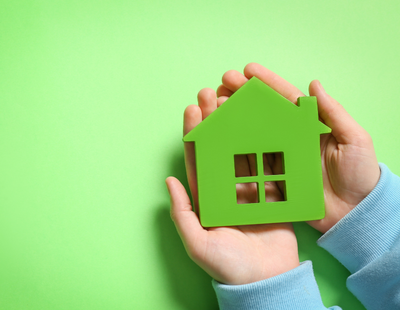A typical comment accompanying news of the UK heatwave is that our homes are not built for 40-degree heat.
Many residential homes lack air conditioning and are said to be built to trap heat, which is useful in winter but not when temperatures reach Saharan levels outside.
National housebuilder Bellway has begun building an experimental eco-house called ‘The Future Home’ as part of a research project which could influence how homes are built, used and sold in the future.
Bellway’s ‘The Future Home’ is being built at The University of Salford’s net-zero research facility Energy House 2.0 that has been part funded by the European Regional Development Fund.
The house will test innovations in building materials, the effects of double and triple glazing, storing solar energy, recovering heat from wastewater, and how to make most efficient use of air source heat pumps.
The house will be tested in temperatures as high as 40C and as low as -20C. Weather conditions including wind, snow and solar radiation will be created in the chamber.
Energy House 2.0 officially opens later this year and will be working alongside industry investigating how housing design can progress to enable the UK to achieve its net zero carbon emissions targets.
The research facility will contain two environmental chambers that will accommodate four houses and has the ability to replicate over 95% of the world’s climatic conditions
Jamie Bursnell, group technical and innovations manager for Bellway, said: “The results of this project have the potential to change how we build homes – and how we live in them.
"In building this home, Bellway is taking a lead in the housebuilding industry to test technologies to help meet net zero carbon targets.
“However, with many of these innovations, we don’t yet know how they will function for real families in real homes, or what their running costs will be. This is particularly important when energy costs have risen so significantly, and homeowners are being hit heavily in the pockets.
“Energy House 2.0 will enable us to find out how everyone can operate their homes more efficiently and how new technologies can assist our efforts in reducing carbon emissions by building more efficient homes.
“The research will produce reliable data that can help us all to make changes. We will compare the theoretical and real performance of different energy methods, finding out how our habits impact on energy consumption and retention.”
Bellway started work building its energy house last month and the build programme is scheduled to be completed in October
Jamie added: “Many of the technologies we will be testing are due to be in common use in new homes by 2026. This project provides us with the opportunity to test their effectiveness and to create solutions to any challenges we encounter.
“The results will help us to deliver more energy-efficient homes and to advise people on how to make best use of new technology to control energy usage and running costs.”
Energy House 2.0 is one of a series of test sites Bellway has set up across the country to work with new energy efficient technologies.
Currently, four ‘Future Homes’ are being built in Callerton, Northumberland, which will be available for open sale and homeowners will work with Bellway to monitor energy usage as part of Bellway’s wider carbon reduction strategy.
















.png)


.png)




Join the conversation
Be the first to comment (please use the comment box below)
Please login to comment